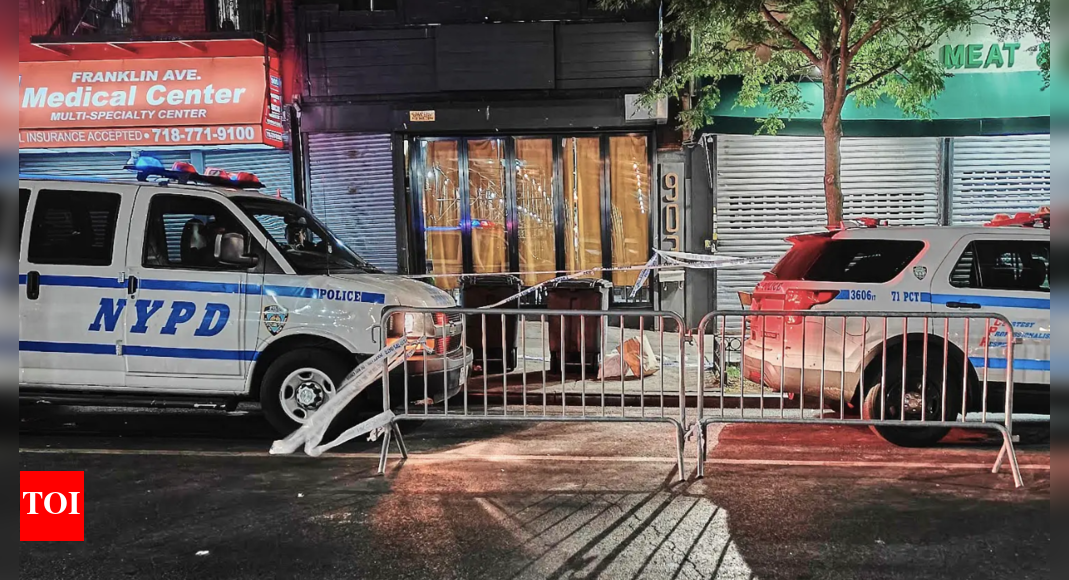Federal Authorities Target Gang Violence with Serious Criminal Charges
The escalating battle against gang violence in New York City has reached a critical juncture as federal prosecutors filed serious criminal charges against a suspected gang member in connection with a devastating shooting at a Brooklyn bar that claimed three lives in August. The case highlights the growing intersection between organized criminal enterprises and random acts of violence that continue to plague urban communities across America.
The incident at the crowded Brooklyn establishment represents more than just another tragic shooting—it exemplifies the complex web of gang-related violence that federal authorities are increasingly targeting through sophisticated legal frameworks designed to dismantle criminal organizations from within.
The August Shooting: A Night of Terror in Brooklyn
The shooting occurred at a popular Brooklyn bar during what should have been a typical evening of entertainment and socializing. Three innocent lives were lost in what investigators have determined to be a gang-related attack that sent shockwaves through the local community and prompted an intensive federal investigation.
Witnesses described scenes of chaos and terror as gunfire erupted in the crowded venue, with patrons scrambling for safety. The New York Police Department immediately secured the scene, with marked vehicles surrounding the establishment as investigators began the painstaking process of collecting evidence and interviewing survivors.
Community Impact and Fear
The psychological impact on the Brooklyn neighborhood has been profound. Local residents report increased anxiety about visiting establishments they once considered safe, while business owners grapple with concerns about customer safety and economic viability. Gang violence doesn’t just claim lives—it fundamentally alters the social fabric of communities, creating ripple effects that can last for generations.
Federal Charges: RICO and Firearms Violations
The decision by federal prosecutors to pursue charges under the Racketeer Influenced and Corrupt Organizations (RICO) Act represents a significant escalation in the government’s approach to gang-related violence. RICO charges are typically reserved for cases involving organized criminal enterprises and carry substantially more severe penalties than traditional state-level charges.
Understanding RICO Prosecutions
The RICO Act, originally designed to combat organized crime families, has evolved into a powerful tool for federal prosecutors targeting gang organizations. RICO charges allow prosecutors to hold individuals accountable not just for specific crimes, but for their participation in ongoing criminal enterprises. This approach enables law enforcement to target the organizational structure of gangs rather than treating individual crimes in isolation.
In this case, the racketeering charges suggest that federal investigators have identified patterns of criminal activity extending beyond the August shooting. Prosecutors likely possess evidence connecting the defendant to a broader network of criminal conduct, making this case part of a larger strategy to dismantle gang operations in Brooklyn and surrounding areas.
Firearms Charges and Federal Jurisdiction
The firearms charges accompanying the racketeering counts reflect the federal government’s commitment to addressing gun violence through existing federal statutes. Federal firearms violations often carry mandatory minimum sentences and can be prosecuted even when state charges might be more difficult to pursue.
The Broader Context of Gang Violence in New York
This case emerges against the backdrop of ongoing concerns about gang activity throughout New York City. Despite overall crime statistics showing improvement in many categories, gang-related violence remains a persistent challenge for law enforcement agencies at every level.
Statistics and Trends
Recent data from the NYPD indicates that gang-related incidents, while representing a relatively small percentage of overall crime, tend to be disproportionately violent and often involve firearms. The random nature of many gang conflicts means that innocent bystanders frequently become victims, as demonstrated by the Brooklyn bar shooting.
Federal involvement in gang prosecutions has increased significantly over the past decade, with agencies like the FBI and ATF working closely with local law enforcement to identify and prosecute gang leaders and members. This collaborative approach recognizes that effective anti-gang strategies require resources and legal tools that extend beyond traditional local policing.
Legal Implications and Potential Outcomes
The charges filed in this case carry severe potential penalties that could result in decades of federal imprisonment. RICO violations alone can result in sentences of up to 20 years per count, while federal firearms charges often include mandatory minimum sentences that eliminate judicial discretion in sentencing.
Prosecutorial Strategy
Federal prosecutors likely chose to pursue this case in federal court to take advantage of stronger sentencing guidelines and to send a clear message to other gang members. The decision to seek federal charges demonstrates the government’s commitment to treating gang violence as a form of organized crime worthy of the most serious legal consequences.
The case may also serve as a foundation for additional prosecutions if investigators have developed intelligence about other members of the criminal organization. RICO cases often begin with individual prosecutions that eventually expand to include multiple defendants and broader conspiracy charges.
Community Response and Prevention Efforts
Local community leaders and activists have responded to the charges with a mixture of relief and calls for more comprehensive violence prevention programs. While prosecution of gang members is essential, many advocates argue that long-term solutions require addressing the underlying social and economic conditions that make gang membership attractive to young people.
Prevention and Intervention
Successful anti-gang strategies typically combine aggressive prosecution with community-based intervention programs, educational opportunities, and economic development initiatives. The Brooklyn shooting serves as a stark reminder that reactive law enforcement, while necessary, must be supplemented by proactive efforts to prevent gang recruitment and provide alternatives for at-risk youth.
Looking Forward: Implications for Public Safety
This case represents a test of federal authorities’ ability to effectively combat gang violence through sophisticated legal strategies. The outcome will likely influence future prosecutorial decisions and could serve as a model for addressing similar crimes in other jurisdictions.
The integration of federal resources with local law enforcement efforts demonstrates recognition that gang violence transcends traditional jurisdictional boundaries and requires coordinated responses from multiple agencies.
Key Takeaways
- Federal RICO charges indicate prosecutors are treating this case as part of broader organized criminal activity
- Three lives were lost in the August Brooklyn bar shooting, highlighting the deadly consequences of gang violence
- Firearms charges carry mandatory minimums that could result in decades of federal imprisonment
- Community impact extends beyond immediate victims to affect neighborhood safety and economic vitality
- Federal prosecution strategy aims to dismantle criminal organizations rather than just punish individual crimes
- Prevention efforts must complement prosecution to address root causes of gang recruitment
- Inter-agency cooperation is essential for effectively combating organized gang activity
This article is based on reporting from the original source

Born and raised amidst the hustle and bustle of the Big Apple, I’ve witnessed the city’s many exciting phases. When I’m not exploring the city or penning down my thoughts, you can find me sipping on a cup of coffee at my favorite local café, playing chess or planning my next trip. For the last twelve years, I’ve been living in South Williamsburg with my partner Berenike.

